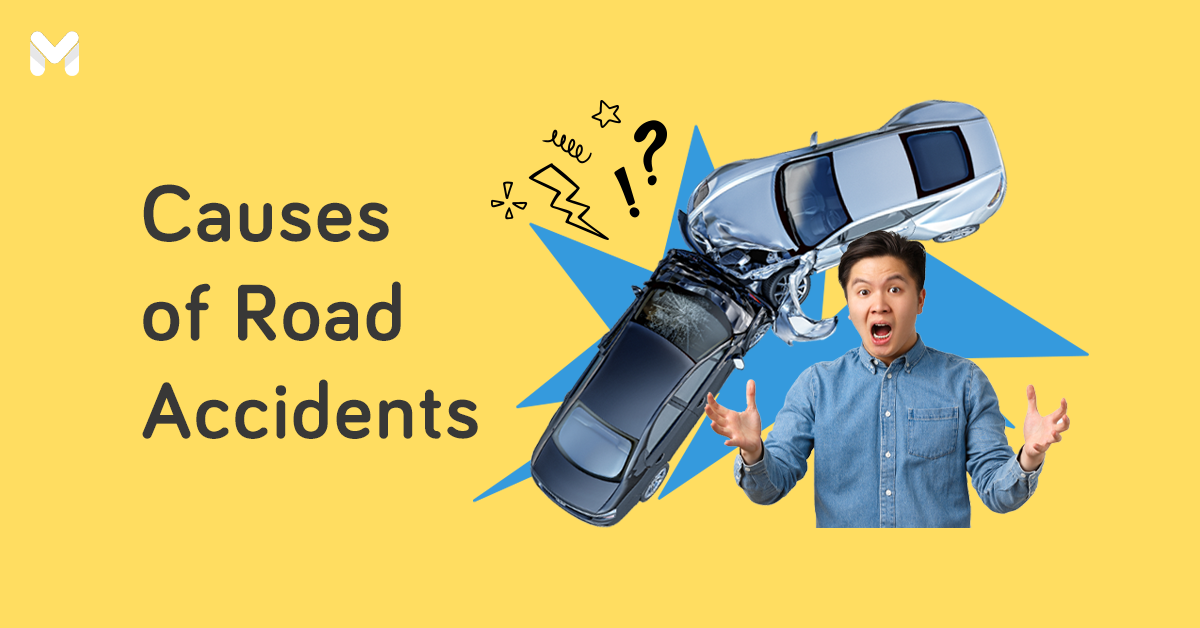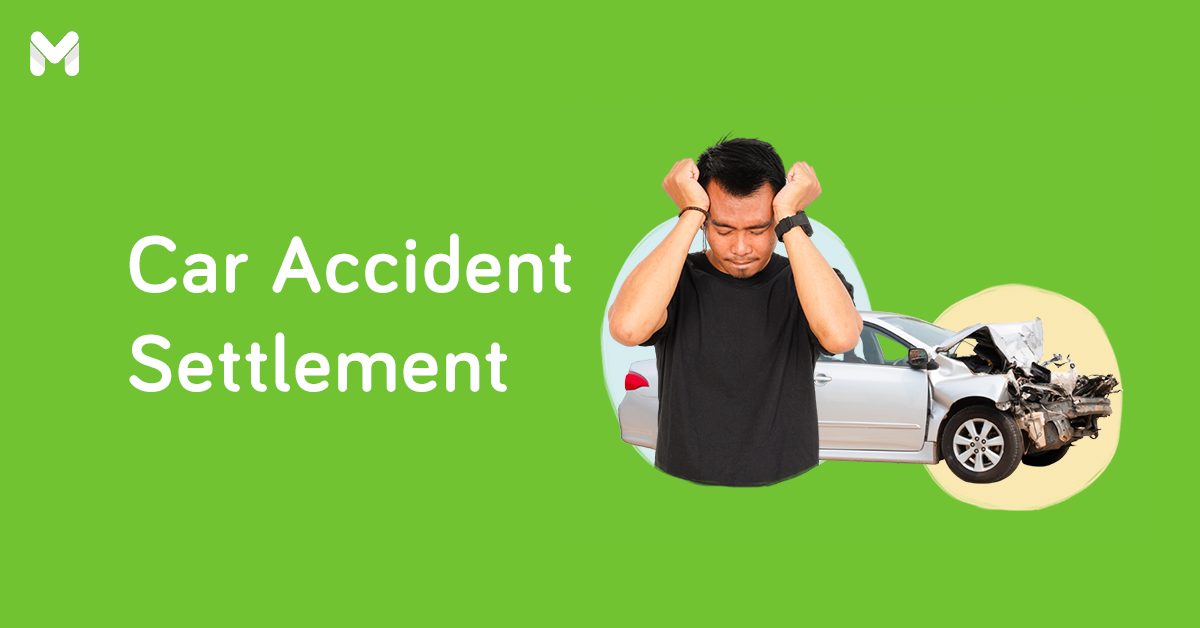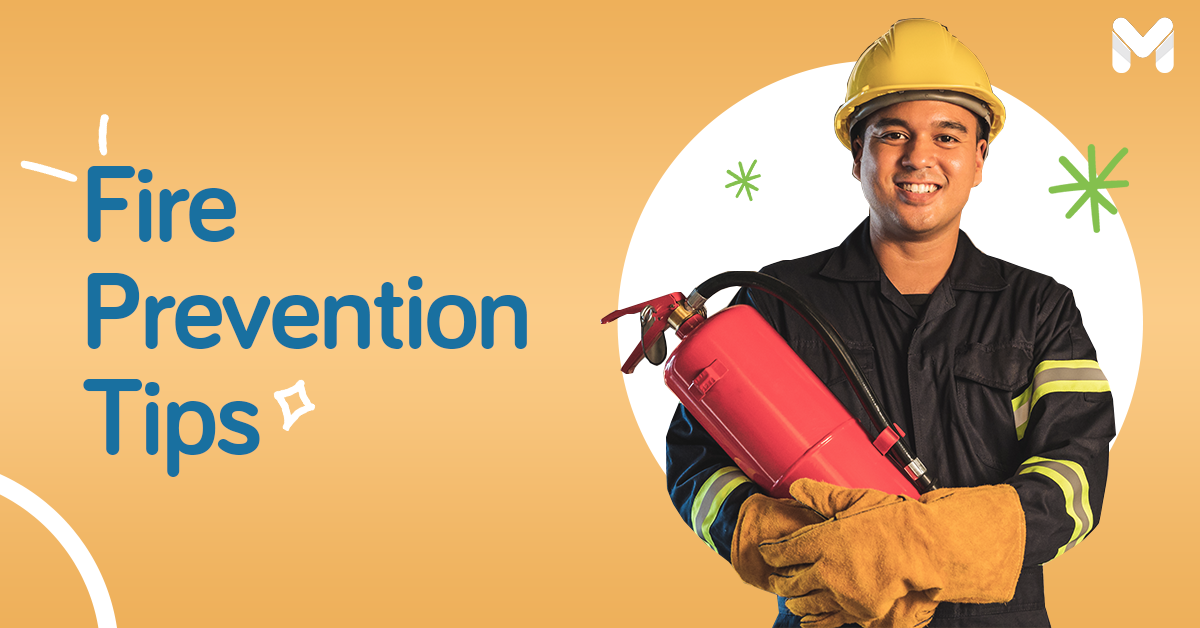Did you know that the most dangerous months to drive along Metro Manila are from June to October?
The rainy months recorded more than 26,000 car accidents in NCR, based on the latest Metro Manila Accident Reporting and Analysis System (MMARAS) report.[1] Around 40% of the total accidents in 2020 happened from June to October.
This data is hardly surprising, as driving conditions during the rainy season in the Philippines are difficult because of slippery roads and low visibility. All these factors increase the risk of road accidents.
Driving safely in bad weather is definitely crucial. How can you ensure safety when driving in the rain? Keep in mind these road safety tips and reminders for driving in the rain.
7 Road Safety Tips for the Rainy Season in the Philippines
1. Check the Weather Forecast

Is it safe to drive today? Especially during the typhoon season, not every day is safe for driving.
Monitor the weather reports from PAGASA through its website and social media channels. The state weather bureau periodically issues a rainfall warning advisory during a typhoon.
Check also the NDRRMC rainfall alerts on your phone, as well as the MMDA advisories on Twitter, to know which areas are not passable due to heavy rains or flooding.
2. Ensure Your Car is in Good Condition
Give your car a thorough inspection before you take it out for a drive, especially during inclement weather. Remember to check your BLOWBAGETS! Pay close attention to your windshield and wipers, battery, headlights, brakes, and tires.
Essential Parts to Check Before Driving in the Rain
☑️ Windshield and wipers
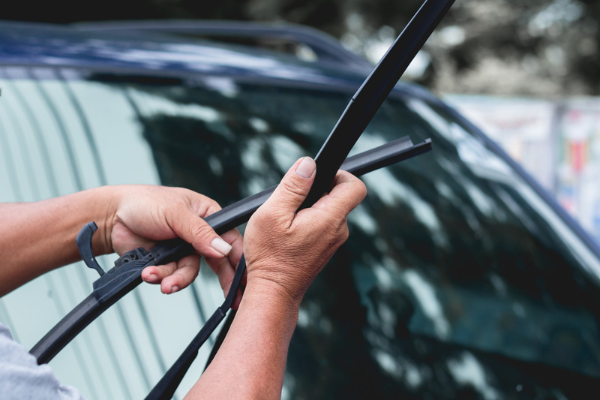
Inspect your windshield and wipers. Your windshield should be free from stains, and its wipers must be in good working condition.
Each time you drive home after a downpour, wipe your windshield dry to prevent watermark buildup, which can make it difficult for you to see the road clearly when driving in the rain.
Also, replace your wiper blades once or twice a year. If your wiper blades are already worn-out, replace them immediately to keep them from causing streaks on your windshield.
☑️ Battery
During the rainy season, car batteries tend to drain quickly because of the prolonged use of electrical parts such as headlights and windshield wipers. When their wiring gets wet, it could lead to a short circuit.
Prevent these issues by regularly checking your battery's condition and replacing it every two years.
☑️ Headlights
Especially in heavy downpours, having fully operational headlights in excellent condition is a must for your driving safety. Check your headlights—they might already be dark or fogged up with scratches and need to be cleaned.
Inspect also the headlight bulbs. If they're in poor condition, install new ones, ideally yellow or gold bulbs that provide a better contrast to improve both vision and visibility.
☑️ Brakes
Well-maintained brakes are essential for wet-weather driving. Check for wear in the brake pads, along with the brake fluid. When your fluid isn’t golden anymore, it needs to be replaced.
☑️ Tires
Check your tires for tread and pressure. If they feel a little tender or if the treads are worn out, replace them immediately. Worn-out tires have less grip, especially on wet roads, which can cause your car to lose control while you're driving.
When replacing your tires, invest in models made specifically for the rainy season, as they provide good traction on slippery roads.
3. Drive More Carefully
Braving through difficult road conditions entails extra road safety precautions. Keep in mind these safety tips for the rainy season in the Philippines.
🚗 Adjust Your Speed to Match the Traffic Speed
Although it makes sense to drive a bit more slowly when it's raining, you don't want to drive at a speed below the prevailing traffic speed. Motorists behind you might get too impatient with your slow pace, causing them to drive recklessly. This scenario might end up in a car collision.
So, how fast or slow should you drive in bad weather? The key is to match the pace of traffic. If it moves slowly, reduce your speed. If it speeds up, keep up with the pace. This is one of the most important road safety tips to remember during the rainy season.
🚗 Slow Down When Approaching Deep Puddles and Curves
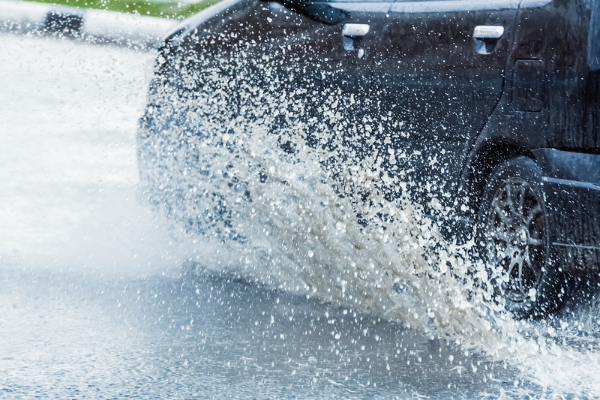
If you drive too fast through standing water, it will splash underneath your vehicle, getting its electrical parts and engine wet and causing a short circuit. You'll end up being stranded in the middle of the road with your stalled car while it's raining.
You also have to drive a little more slowly on curves to prevent skidding. Step on the brake pedal mildly as you approach curves.
🚗 Drive More Smoothly
The rainy season in the Philippines is the time to be a smooth driver at all times. Steer, accelerate, and brake gently when driving along slippery roads and through poor visibility conditions.
🚗 Beware of Road Hazards
When driving in the rain, watch out for humps, street diggings, open manholes, and other hazards on the road. Be alert around pedestrians carrying umbrellas and wearing hooded jackets, as these can limit their vision.

4. Use Your Auto Lights Properly
Visibility is greatly reduced when you’re driving in the rain, so it's important to know which automotive lights to use or not. Remember these auto lighting safety tips when driving during bad weather.
🚗 Switch Your Headlights and Fog Lights On

Even if it's daytime, road visibility becomes poor once it rains. When that happens, you should turn on the headlights and fog lights to better see the road ahead.
🚗 Don't Use High Beams
Use your low beams and rear fog lights to ensure that other drivers know your presence on the road. High beams are a no-no, as you might blind other motorists.
🚗 Don't Turn On Your Hazard Lights
When your hazard lights are on, it informs other motorists that your vehicle isn't moving (when it's really not). They won't know if you're about to turn or overtake.
Also, the flashing lights limit not only your vision but also that of other drivers. If drivers near you can't see clearly, they might hit your car.
Use your hazard lights only during an emergency like when your vehicle has stalled and become a road hazard.
See also: 10 Driving Tips to Make Late-Night Driving Safer
5. Control Your Car When It's Skidding
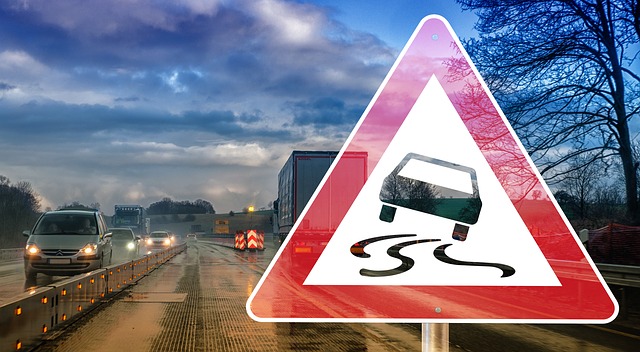
While skidding doesn’t happen as often, you must know what to do when your car goes into a skid. Don't forget these most important rainy day reminders: do not panic, ease your foot off the gas pedal, and avoid slamming on the brakes—you’ll lose even more control.
Steer carefully in the direction that you want to go until the front of your car is moving in a straight line and the back of your car is in line with the front.
6. Keep a Safe Distance from the Car Ahead of Yours
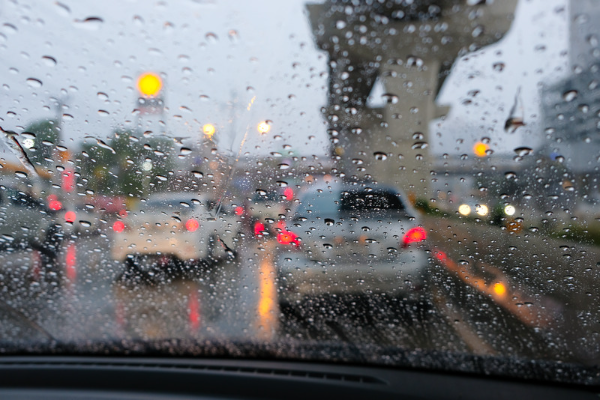
Tailgating—or driving too closely behind another car—may seem tempting, given that the roads tend to be slick and when traffic is moving slowly. This is the last thing you'd want to do, as it's dangerous both for you and the motorist ahead of you. If the other car stops suddenly, it will lead to a collision.
Having a safe distance between you and the other car helps you react in case you might actually need to. You're safe if you're able to see the taillights of the vehicle in front of you.
7. Avoid Flood-Prone and Accident-Prone Roads
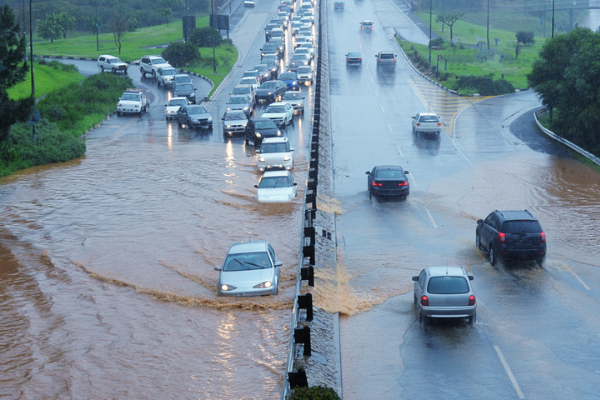
As much as possible, refrain from passing through flood-prone areas during the rainy season. Unless your vehicle is built for wading through floodwaters, never make the mistake of driving through floods—your car is not a speedboat!
To plan your route and know which flooded, accident-prone, and traffic-congested roads to avoid, use mobile apps like Waze or follow the social networks of legitimate news websites.
If you're on a flooded street, pull over to the side of the road or park your car on higher ground and wait until the water recedes. You sure don't want to have flooded car problems.
Read more:
- Killer Highways: What You Should Know About Driving Through Accident-Prone Areas
- Top Causes of Road Accidents in the Philippines
- Road Accident Laws Motorists Should Know
Final Thoughts
Remember all these road safety tips, driving precautions, and reminders for the rainy season in the Philippines to avoid accidents at all costs. Despite the bad weather and less-than-ideal road conditions, you can protect yourself, your passengers, and your car against road hazards.
Get a Free Car Insurance Quote
Getting the best car insurance coverage need not be expensive. Compare quotes from different providers in the Philippines in just a few clicks.
| Car Insurance Company | Maximum Total Sum Insured | CTPL Coverage | Own Damage & Theft Coverage | Acts of Nature Coverage | Death / Disablement Coverage |
|
FPG Insurance
|
₱4 million
|
✔️
|
✔️
|
✔️
|
|
|
Malayan Insurance
|
₱7.5 million
|
✔️
|
✔️
|
✔️
|
|
|
The Mercantile Insurance Corporation
|
₱5 million
|
✔️
|
✔️
|
||
|
OONA Insurance (formerly MAPFRE)
 |
₱5 million
|
✔️
|
✔️
|
✔️
|
✔️
|
|
PGA Insurance
 |
₱3 million
|
✔️
|
|||
|
SGI Philippines
|
₱5 million
|
✔️
|
✔️
|
✔️
|
|
|
Standard Insurance
|
₱5 million
|
✔️
|
✔️
|
✔️
|
✔️
|
|
Stronghold Insurance
|
₱3 million
|
✔️
|
Source: [1] MMRAS Annual Report 2020 (MMDA







